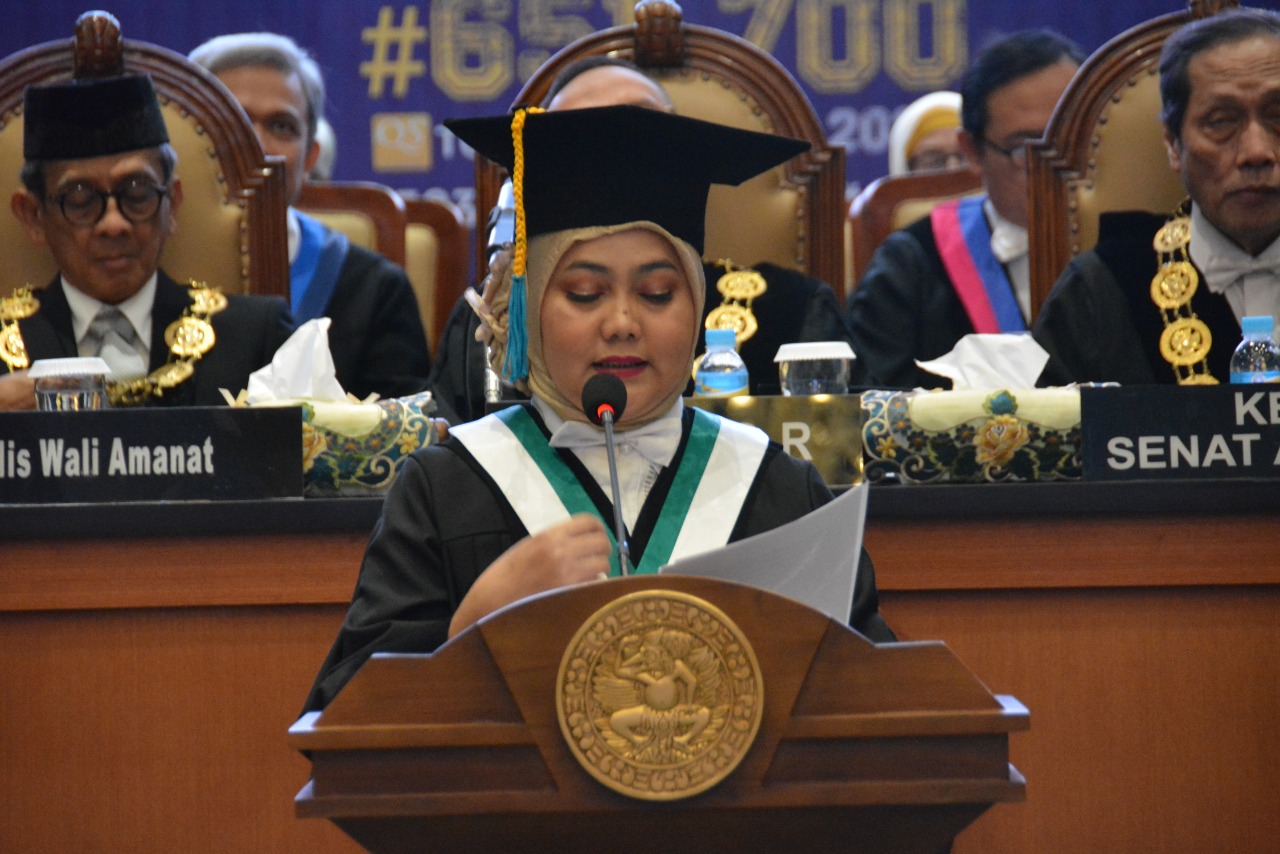UNAIR NEWS – Periodontal disease is a disease that causes inflammation in dental supporting tissues such as gums, bones, and other dental related structures that causes progressive damage.
At the professorship conferment of Universitas Airlangga (UNAIR) on Saturday, June 22, 2019, Prof. Dr. Ernie Maduratna Setiawatie, drg., M. Kes., Sp. Perio (K), the 20th active professor of Faculty of Dental Medicine (FKG) explained that there is a relationship between periodontics and systemic diseases, such as stroke, diabetes mellitus, heart, blood vessels, Alzheimer’s and other diseases.
“Periodontal disease can be prevented and in many cases, can be treated easily. Therefore it is necessary to disseminate efforts to prevent periodontal disease in all Indonesian people so that it can reduce the risk factors for systemic diseases,” explained Prof. Ernie.
According to Prof. Ernie, in the era of industrial revolution 4.0, technology can be applied in the field of periodontal disease by exploring the potential of telemedicine, monitoring and treatment of patients remotely through sensors connected to the internet.
Telemedicine technology is expected to be very useful in the treatment of chronic periodontitis associated with systemic diseases. Through technological advancement, it may be possible for periodontists to receive referral medical check-ups from dentists in remote locations in the future.
FKG UNAIR’s periodontal medicine in collaboration with UNAIR’s Faculty of Science and Technology (FST) in biotechnology is developing an e-nose application for early detection of perio-pathogen bacteria (one of the bacteria that causes periodontal disease, ed) and dentolaser to limit the use of antibiotics in the periodontal field.
“In the future, in the field of 3-dimensional printing, there is a plan to design a personal dental implant with digital implantology,” said Prof. Ernie.
Prof. Ernie explained, a new approach in the field of periodontal disease in era 4.0 displays the use of digital dentistry software aimed at early detection and treatment of periodontal disease quickly and precisely. Also, early detection of periodontal patients, especially that who belongs to high-risk groups and to develop the least invasive therapy with genomic medicine.
The concept can change the services of periodontal disease therapy to Personalized Periodontal Medicine, which provides an opportunity for the treatment of periodontal disease in the 21st century. In that model, appropriate diagnostic testing is done to select the right and optimal therapy based on the context of the patient’s genetic content or other epidemiological, sociological, molecular, physiological, or cellular analyzes.
“The comprehensive and holistic Personalized Periodontal Medicine therapy approach can become a new treatment strategy in the Periodontal field,” concluded Prof. Ernie.
Author: Galuh Mega Kurnia
Editor : Khefti Al Mawalia





